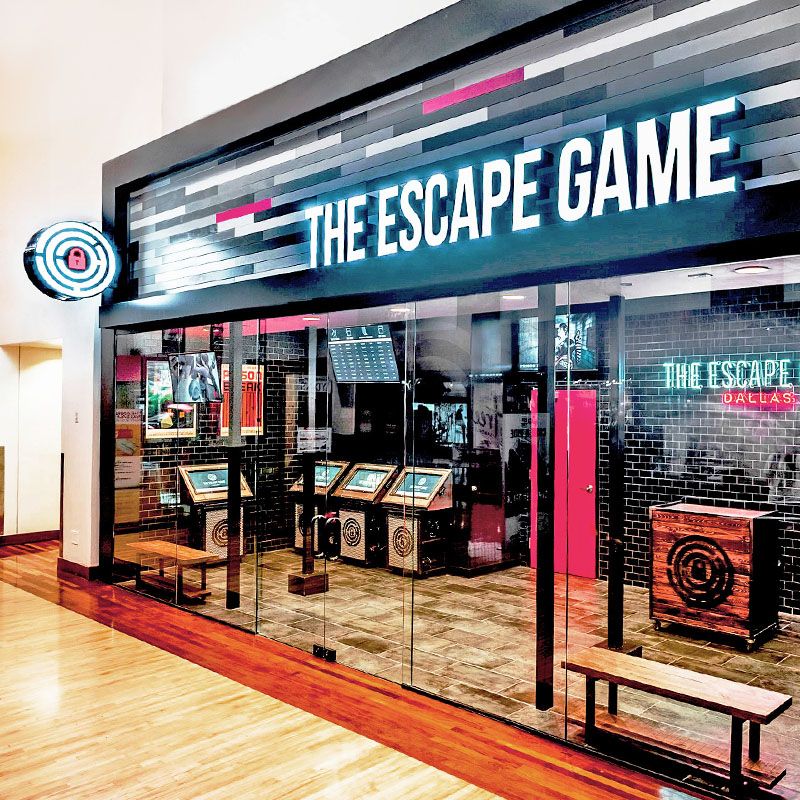Team Activities at Minneapolis Escape Room-- Perfect for Buddies and Family
Team Activities at Minneapolis Escape Room-- Perfect for Buddies and Family
Blog Article
Group Techniques: Just How to Collaborate Efficiently in a Getaway Room
Browsing the complexities of a getaway room requires greater than plain enthusiasm; it calls for a well-coordinated approach based in clear communication, strategic function tasks, and proficient time monitoring. Groups have to proactively pay attention per participant's understandings, designate duties that align with private strengths, and preserve normal check-ins to ensure emphasis and protect against redundancy. By promoting a setting that values cohesion and flexibility, groups can dramatically enhance their performance and success rates. The subtleties of these methods can change the experience, but how exactly can they be implemented to make the most of the potential for success?
Establish Clear Interaction
To facilitate clear interaction, it is vital to mark a main point of call for info circulation. Short, concentrated updates from each group participant can keep the team informed without overwhelming them with info.

Designate Roles Purposefully
While clear communication establishes the structure for efficient teamwork, assigning functions strategically guarantees that each employee's staminas are made use of efficiently. In a getaway area scenario, the time-sensitive and intricate nature of challenges necessitates an efficient strategy to task delegation. By identifying and leveraging specific proficiencies, groups can enhance their analytical abilities and enhance general efficiency.
A person with an eager eye for detail could succeed in finding surprise things, while a logical thinker could be better matched to fixing challenges. This role often requires strong business and social skills.
2nd, guarantee that functions are versatile and versatile. As brand-new obstacles arise, the team has to have the ability to pivot, reapportioning tasks as required. This adaptability helps maintain momentum and avoids traffic jams that might happen as a result of rigid function tasks.
Inevitably, a strategic strategy to function assignment not only makes best use of the toughness of each employee yet also fosters a natural setting, driving the team towards an effective escape.
Use Diverse Abilities
Acknowledging and using the diverse skills within your group can substantially raise your performance in an escape space. Each employee brings distinct staminas to the table, and efficiently leveraging these capabilities can expedite problem-solving and enhance general effectiveness. For instance, a team member with solid logical skills might excel at deciphering complex codes or patterns, while an additional with eager empirical abilities may quickly find surprise clues that may forget.
Motivate team participants to articulate their insights and ideas immediately, ensuring that all possible services are thought about. Additionally, assigning tasks that websites straighten with each member's toughness can avoid bottlenecks and make sure that development is continuous.
Moreover, variety in abilities usually converts to diversity in thinking designs, which is very useful in a getaway area setup. While some obstacles may call for rational reasoning and accuracy, others could take advantage of creative and side reasoning. By identifying and leveraging this variety, teams can address a broader variety of difficulties more effectively, consequently raising their opportunities of a successful retreat.
Manage Time Successfully

First, allocate initial minutes for a quick survey of the space. Determine noticeable puzzles and separate jobs based upon staff member' strengths, guaranteeing that nobody is idle. Establish inner time checkpoints to evaluate development regularly; for example, purpose to have half the problems addressed by the mid-point of the video game. This method can aid maintain the group focused and avoid time from slipping away unnoticed.
Furthermore, avoid passage vision. If a problem is taking as well long, turn team participants or move on to one more challenge, returning later on with fresh point of views. Interaction is extremely important-- keep everyone updated on addressed problems and staying tasks to stay clear of redundant efforts.
Finally, use any kind of tips or ideas sparingly but purposefully you could look here - best escape room. Recognizing when to request assistance can conserve beneficial time. By adhering to these time management concepts, teams can dramatically enhance their opportunities of an effective and pleasurable escape space experience
Debrief and Reflect
Reflection is an important facet of group development and improvement in the context of retreat spaces. Once the challenge is finished, whether effectively or not, it is important for the team to participate in a structured debriefing session. This process enables group members to evaluate their performance, recognize staminas, and determine locations for enhancement.
Start the debrief by discussing what worked out. Highlight specific circumstances of efficient communication, analytical, and partnership. Acknowledging these favorable behaviors enhances them and motivates their rep in future challenges.
Next, deal with the challenges encountered. Discuss minutes of complication, miscommunication, or inefficient approaches. Motivate an open and positive discussion where staff member can share their viewpoints without concern of objection. This fosters a culture of constant renovation and learning.
Final Thought
In verdict, effective partnership in an escape area is based upon clear communication, strategic function projects, the efficient usage of diverse skills, and skillful time management. By creating a natural and flexible team atmosphere, the chance of effectively addressing problems and accomplishing the objective of running away the space is considerably improved.
Report this page